In today’s fast-paced world, the intersection of economic structures, technology, cognitive abilities, and well-being is becoming increasingly important. These four pillars of modern society are intricately linked, each impacting the others in ways that drive innovation, improve quality of life, and create opportunities for individuals and organizations alike. This article will delve into how these elements converge and shape our lives, offering insights into their potential to create a more sustainable and prosperous future.
medali777 and Technology: A Symbiotic Relationship
The rise of digital currencies and distributed ledger systems has fundamentally altered the financial landscape. Traditional banking systems are being disrupted by innovative technologies that enable faster, more secure, and transparent transactions. For example, cryptocurrencies have created new ways for people to invest, store wealth, and transfer money across borders without the need for intermediaries like banks. This revolution in finance is driven by cutting-edge technologies that have not only improved the speed and efficiency of transactions but also enhanced the security of financial operations.
Moreover, technology plays a crucial role in financial management and planning. With the advent of AI-powered tools, individuals and businesses can now use algorithms to evaluate financial data, predict market trends, and automate investment strategies. Robo-advisors, for instance, use AI to assess a person’s financial goals, risk tolerance, and investment preferences, thereby providing personalized investment advice. This has democratized access to financial planning, making it available to a wider audience, even those with limited financial knowledge.
The development of financial technology companies is another example of how finance and technology are coming together. These companies leverage digital platforms to offer services like peer-to-peer lending, mobile payments, and crowdfunding. They are making financial services more accessible, especially in underbanked regions of the world.
Intelligence in the Age of Technology
Artificial Intelligence (AI) are reshaping every aspect of our lives, including finance, healthcare, and even education. In finance, AI algorithms can process vast amounts of data far more efficiently than humans, enabling investors and traders to make quicker, data-driven decisions. Machine learning models are used to identify market fluctuations, detect fraud, and optimize portfolios.
In healthcare, AI is revolutionizing the way medical professionals diagnose and treat patients. Machine learning algorithms can analyze medical imaging, genetic data, and patient histories to assist in early diagnosis of diseases such as cancer and diabetes. AI-powered health assistants can also help manage chronic conditions, offering personalized advice based on real-time data collected from wearable devices. Furthermore, AI is enabling breakthroughs in drug discovery by simulating the effects of different compounds, accelerating the process of developing new medications.
The use of AI in these areas is not without challenges. Ethical concerns surrounding privacy, data security, and the potential for job displacement in industries such as healthcare and finance need to be addressed. However, as AI continues to evolve, its potential to improve decision-making, enhance efficiency, and drive innovation remains immense.
Health and Finance: The Economics of Well-Being
The intersection of health and finance is an area that is often overlooked, yet it is one of the most critical aspects of personal and societal well-being. Healthcare costs are rising globally, and many individuals struggle to afford the medical care they need. This financial burden has led to a growing interest in health insurance, medical savings accounts, and other financial tools that can help individuals manage healthcare expenses.
Financial planners are increasingly incorporating health-related concerns into their strategies, recognizing the impact that health can have on an individual’s financial stability. For instance, individuals who face significant health challenges may find it difficult to work, leading to lost income and increased healthcare costs. As a result, financial planning must take into account long-term health risks and the costs associated with managing those risks.
Moreover, the relationship between health and finance extends beyond individuals to entire economies. Countries with a healthier population tend to have stronger economies because a healthy workforce is more productive. Governments and businesses are increasingly investing in programs that promote public health, recognizing the economic benefits of reducing healthcare costs and improving quality of life.
Technology and Health: A Path to Better Living
Technology is playing a pivotal role in improving healthcare and overall well-being. Wearable devices such as smartwatches and health-monitoring apps are giving individuals more control over their health by providing real-time data on heart rate, sleep patterns, physical activity, and other vital signs. This data can be used to make informed decisions about lifestyle changes, track progress towards health goals, and even detect early signs of potential health problems.
Telemedicine is another technology-driven advancement that is transforming healthcare. Through telemedicine platforms, patients can consult with healthcare professionals remotely, reducing the need for in-person visits and making healthcare more accessible to people in rural or underserved areas. During the COVID-19 pandemic, telemedicine became a lifeline for many, allowing people to continue receiving medical advice while maintaining social distancing protocols.
Furthermore, the integration of AI and big data in healthcare is improving diagnostics, treatment plans, and patient outcomes. Machine learning models are now able to predict patient outcomes, identify the most effective treatments, and even suggest preventative measures to improve long-term health.
The Future of Finance, Technology, Intelligence, and Health
As these four domains—finance, technology, intelligence, and health—continue to evolve, they will undoubtedly become even more intertwined. The continued advancement of AI and machine learning will lead to more personalized financial services and healthcare solutions. Blockchain technology has the potential to revolutionize the healthcare industry by ensuring secure and transparent management of medical records, giving patients more control over their data.
In finance, the rise of digital currencies and decentralized finance (DeFi) could lead to a more inclusive financial system, where individuals can access financial services without relying on traditional banks. On the health front, advancements in genomics and biotechnology could lead to personalized medicine that is tailored to an individual’s genetic makeup, offering more precise and effective treatments.
The challenge, however, will be ensuring that these advancements benefit all people, regardless of socioeconomic status. As technology continues to advance, it is crucial to ensure that these innovations are accessible, equitable, and sustainable. Governments, businesses, and individuals all have a role to play in shaping a future where finance, technology, intelligence, and health work together to improve the quality of life for everyone.
How Finance, Technology, Intelligence, and Health Shape Our Future
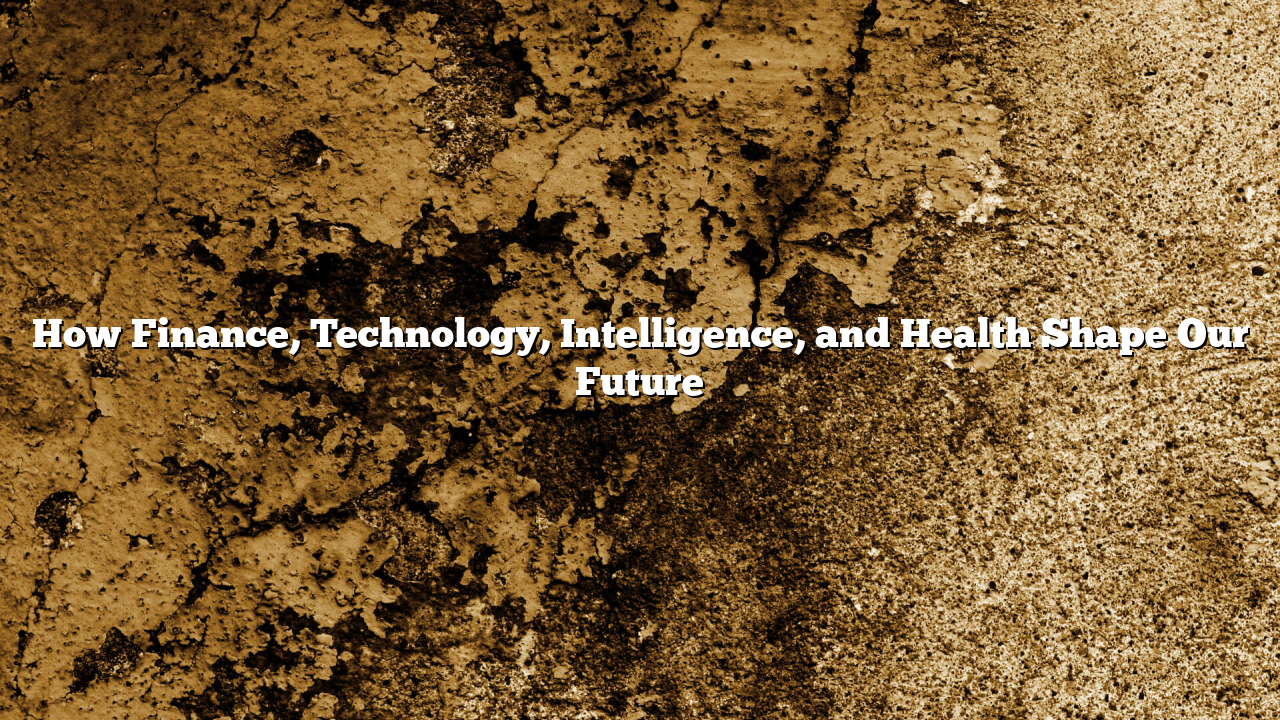
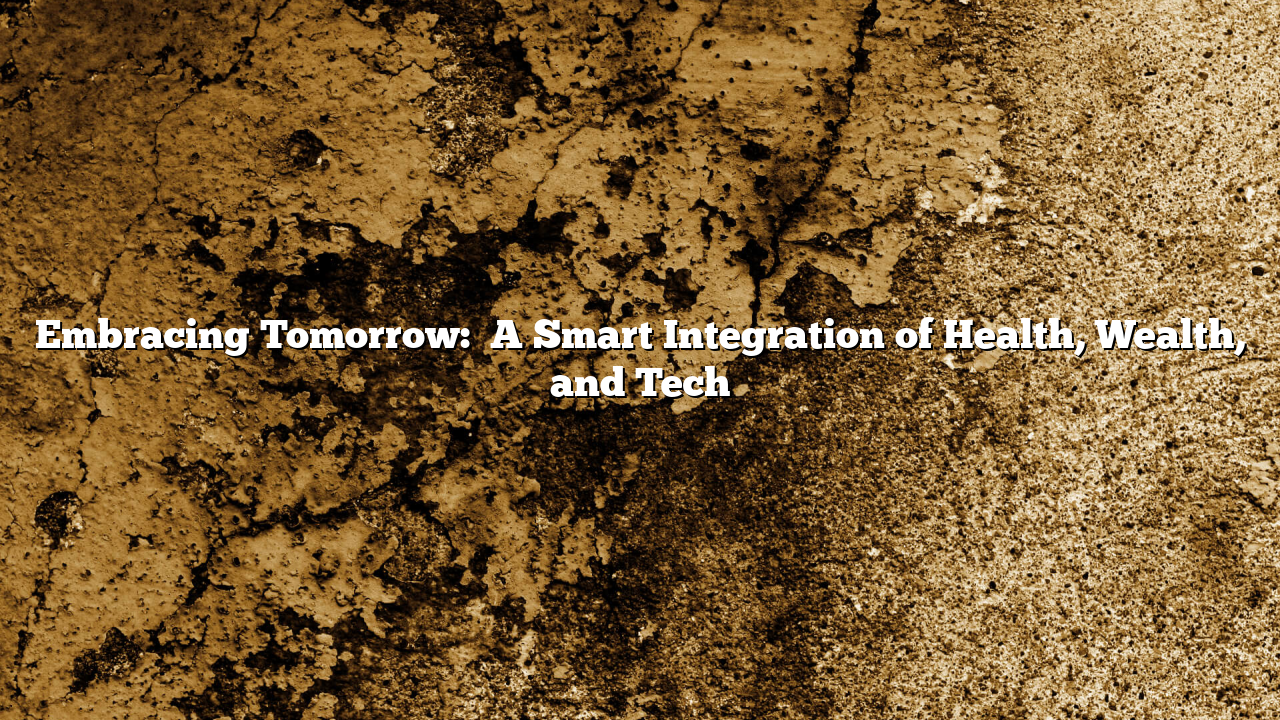


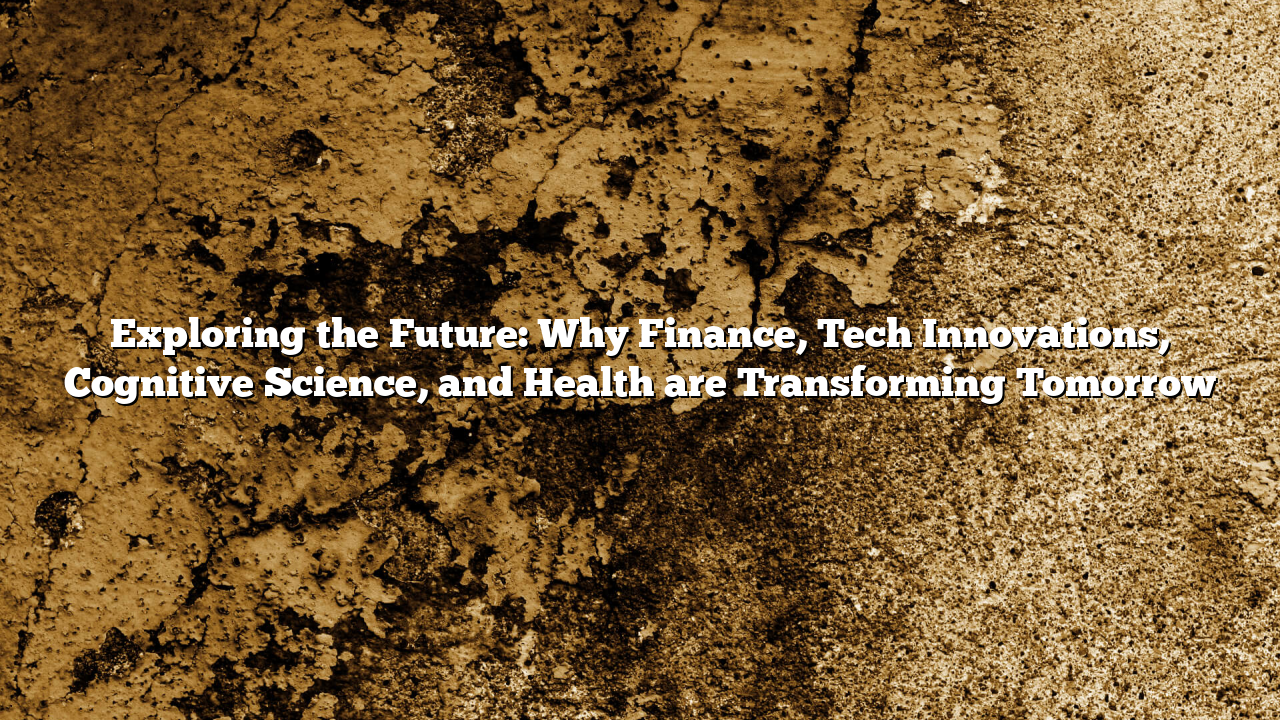

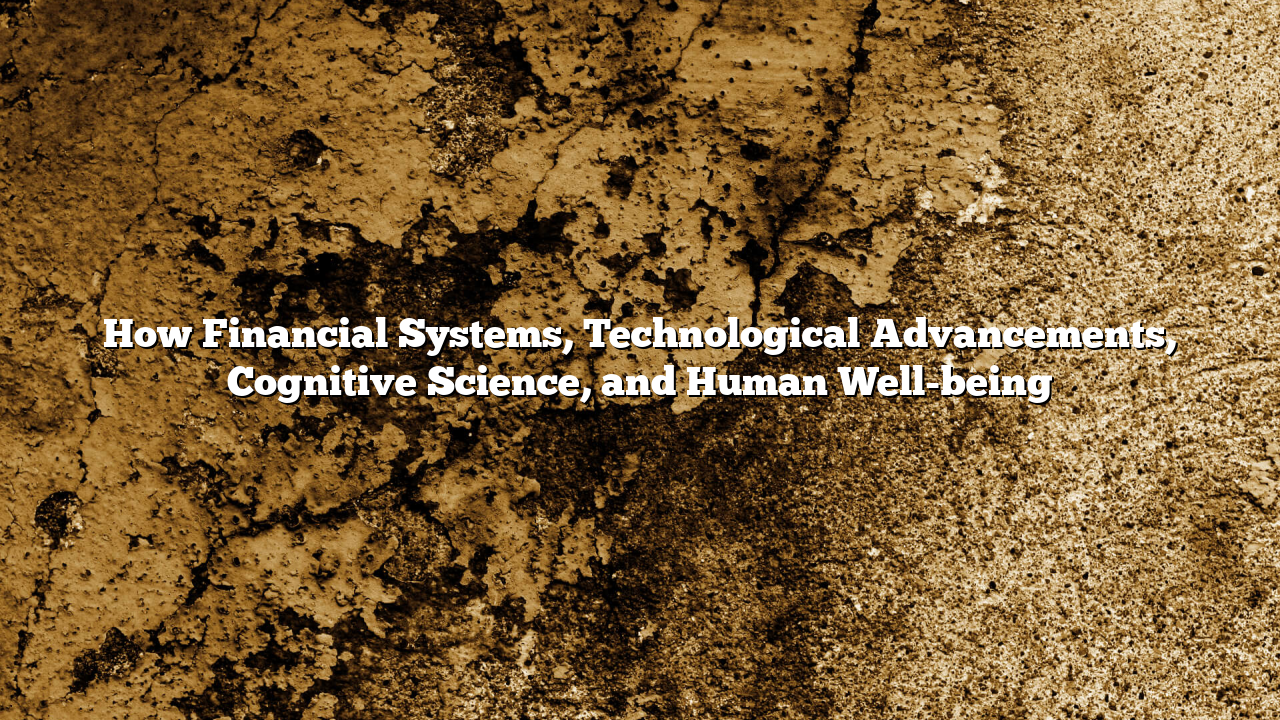
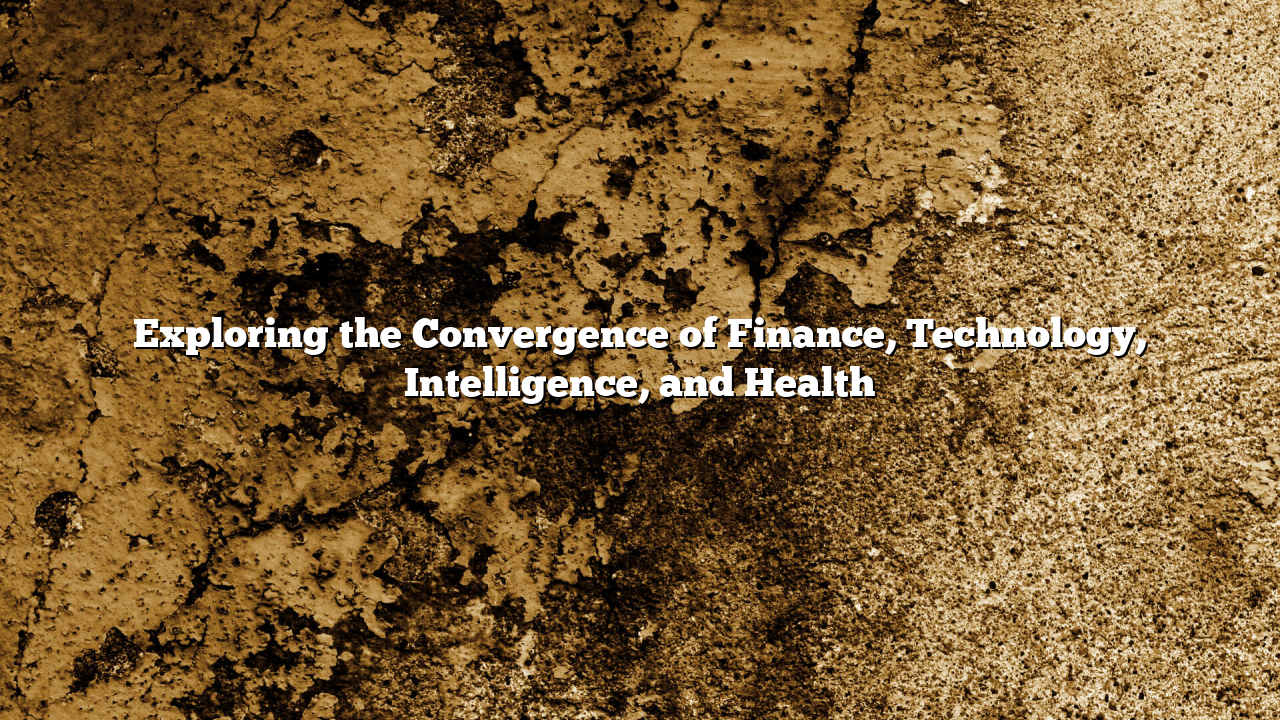
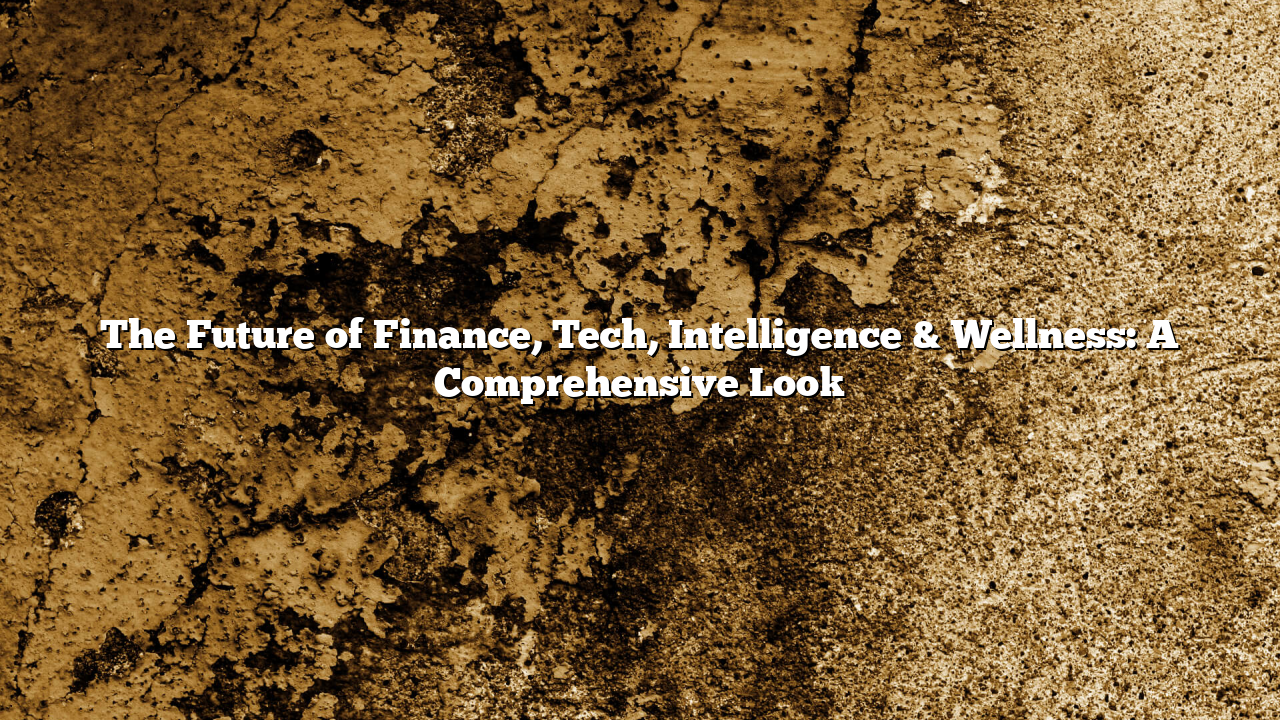

Leave a Reply